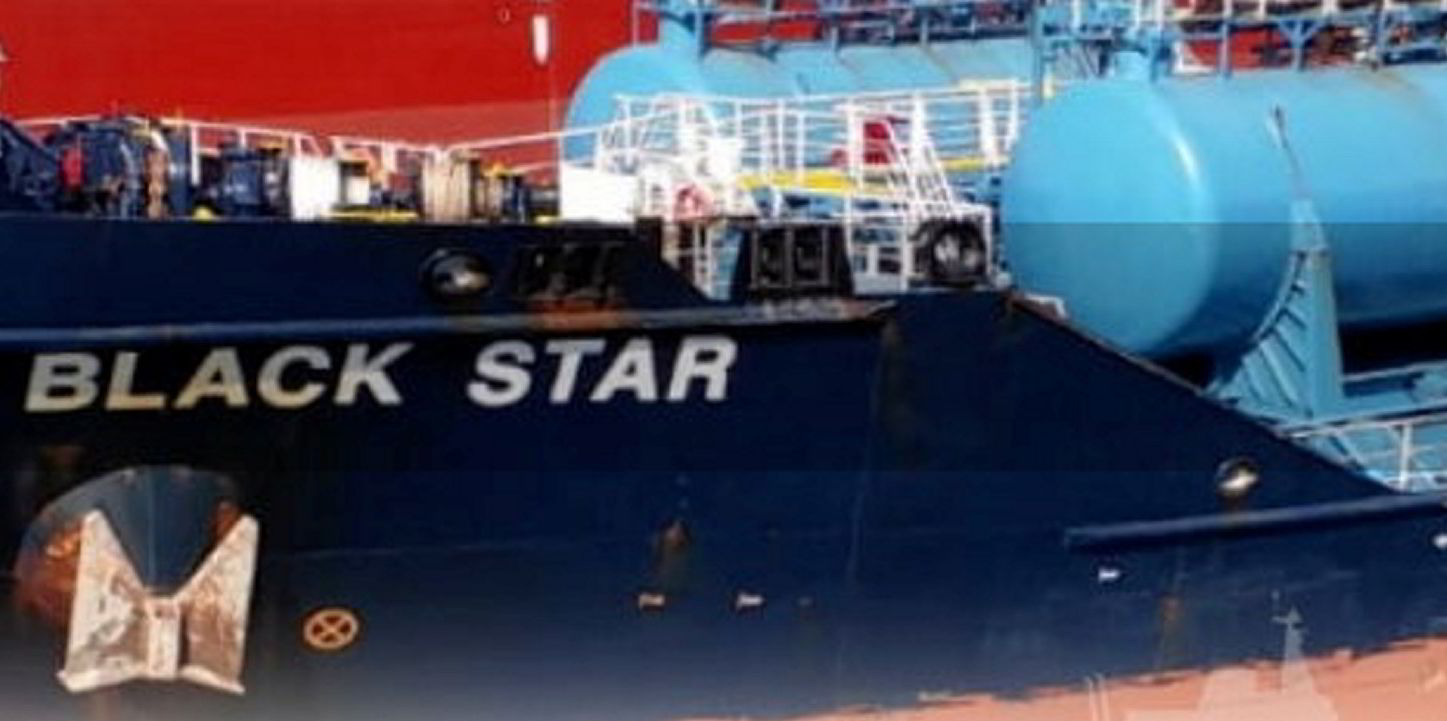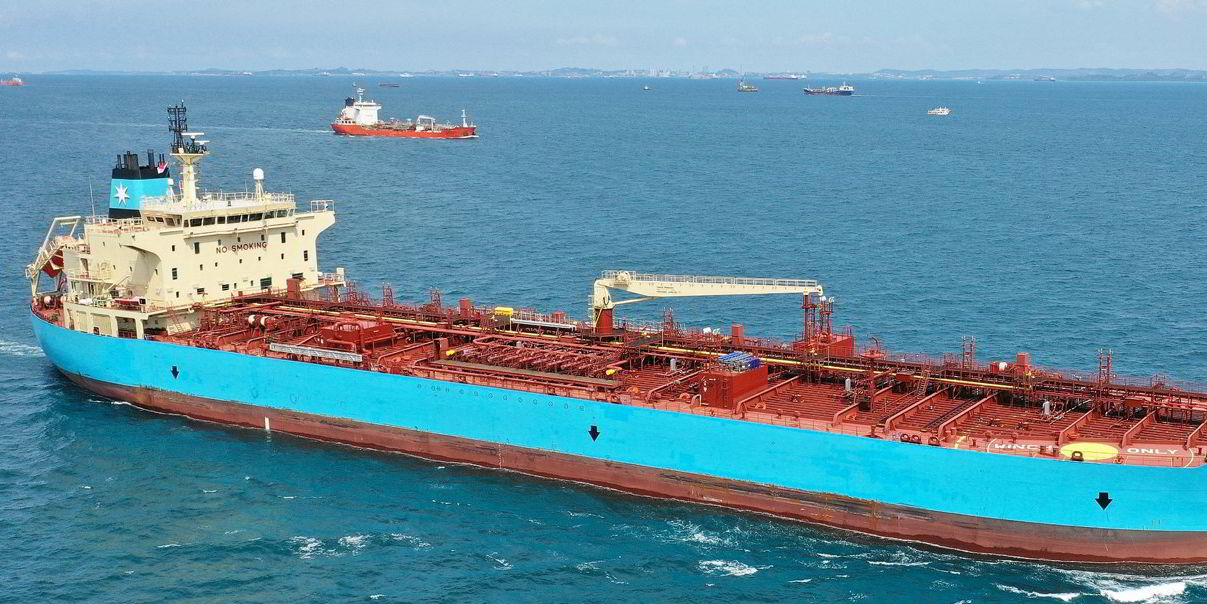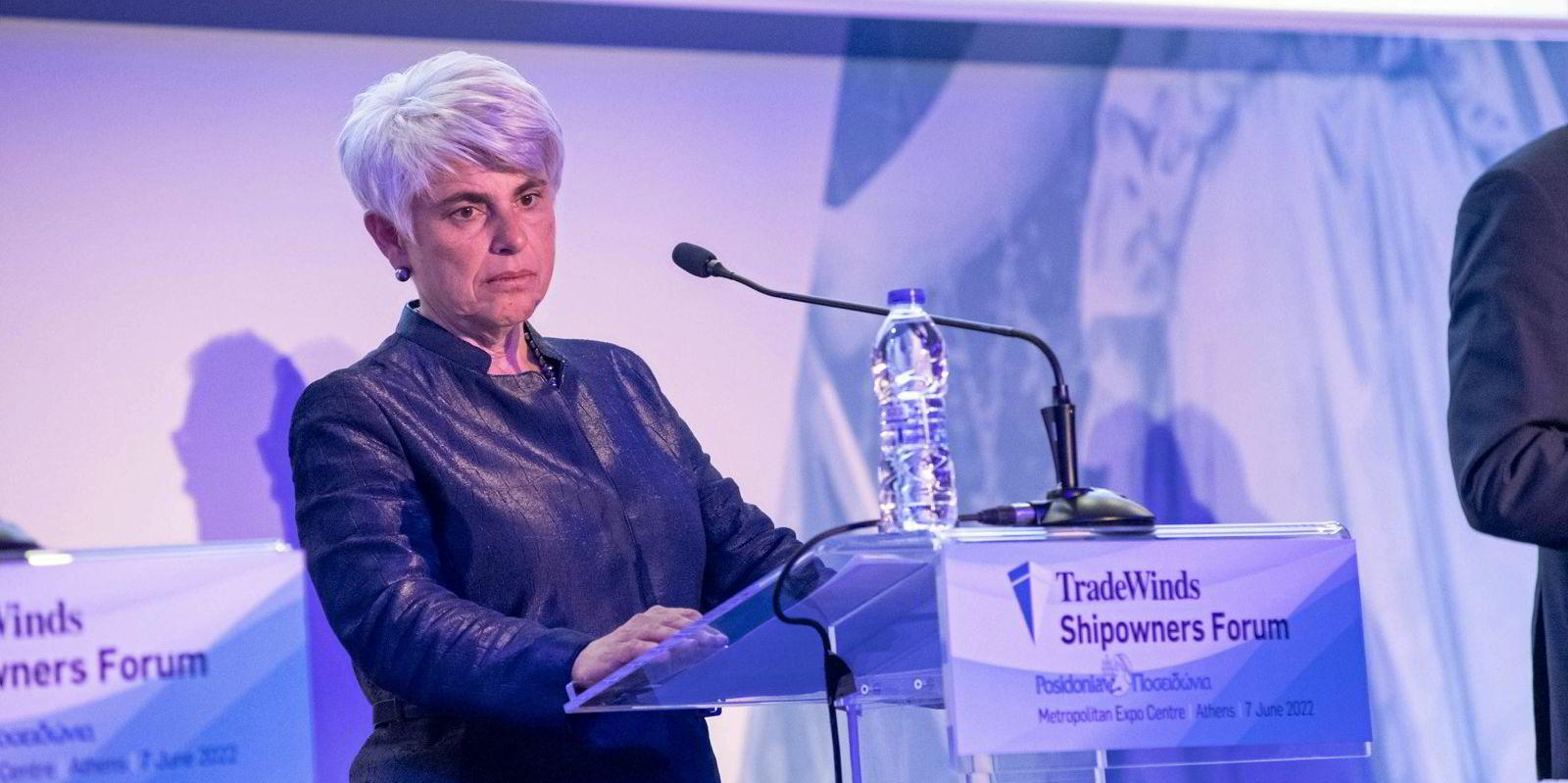A Maersk Tankers vessel has been stopped from unloading its cargo of oil in Spain for breaching the European Union’s Russian sanctions rules, according to the country’s transport ministry.
The 50,000-dwt Maersk Magellan (built 2010) was turned away from the port of Tarragona after receiving a cargo in a ship-to-ship transfer that had previously been carried by a former Russian-flagged carrier.
The Maersk Magellan left the area of the port late on Monday and headed back into the Mediterranean with its 355,000 barrel cargo, according to Kpler ship tracking data.
Spanish authorities said the tanker was carrying diesel but Maersk said the cargo was vacuum gas oil (VGO). The pool operator said it was in contact with the Spanish authorities about the decision and its lawyers were investigating Spain’s interpretation of EU rules.
The data showed that the Maersk Magellan received the cargo in a ship-to-ship transfer from a Vietnamese-owned product tanker in the Alboran Sea near to the Mediterranean gateway to the Atlantic on 6 February.
The 108,900-dwt Elephant (built 2007) had originally received the cargo from the Seychelles-owned 46,200-dwt Nobel (built 1997) which changed from the Russian flag on 1 July to Cameroon.
EU regulations bar access to any Russian-flagged ships that changed to another flag after 24 February, the date of the invasion of Ukraine, said Spanish authorities.
The transport ministry said the Maersk Magellan was subsequently barred under rules that “prohibit conscious and deliberate participation in activities whose purpose or effect is to circumvent the prohibitions established by the European Union after the invasion of Ukraine by Russia”.
The Singapore-flagged Maersk Magellan is owned and operated by Maersk Products Tankers and is part of the Maersk Tankers pool.
The investigation started after Spanish authorities learned of the ship-to-ship transfer between the Elephant and Maersk Magellan, said authorities. The inquiry revealed the certificate of origin of the oil from the Nobel.
In a statement, Maersk Tankers said the tanker had received the cargo as part of its “normal operations” and following a full sanction check.
It said it carried out checks on both the Elephant and Nobel before deciding to go ahead with the trade.
“This covered a cargo check based on a detailed analysis of all available data and supported by official documents that confirm the cargo is of Turkish origin and was loaded by Nobel in the port of Aliaga, Turkey on 28 January 2023.
“Maersk Tankers is currently in dialogue with relevant parties and the vessel is meanwhile awaiting further detailed instructions from charterers in relation to the discharge of its cargo.”
The port ban is the second time that Spain has banned a tanker from docking linked to Russian-origin cargoes but with a less high-profile operator.
The 9,400-dwt Black Star (built 2001) was not allowed to berth in Barcelona after the authorities received evidence that it was carrying cargo transferred from a Russian ship, the Andrey Pervozvanniy.

The 25,100-dwt Andrey Pervozvanniy (built 2003), had earlier in April been barred from calling into Barcelona under the sanctions regime.
The ship, carrying cargo including non-food palm oil and derivatives, then carried out the ship-to-ship operation to the Turkish-operated Black Star in waters close to Malta, according to the Spanish government.
The port bans were part of a package of EU sanctions which came into force in April. They have since been bolstered with EU bans on Russian seaborne crude and products imports. The latter came into force on 5 February.





